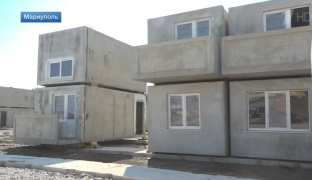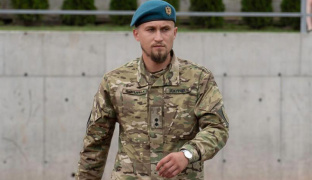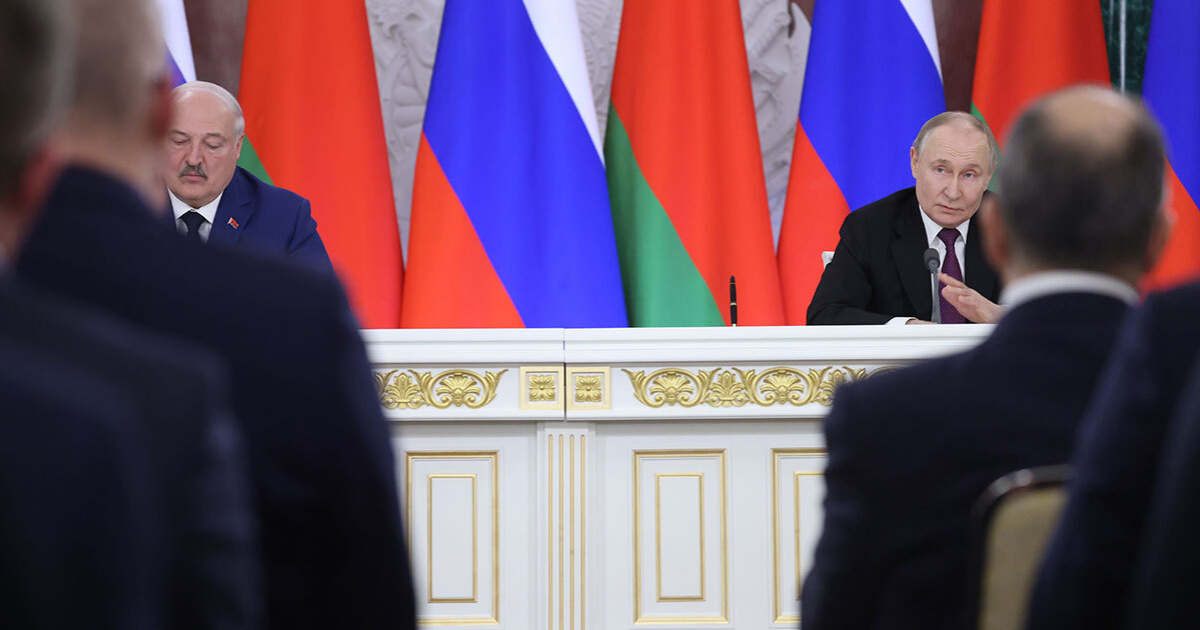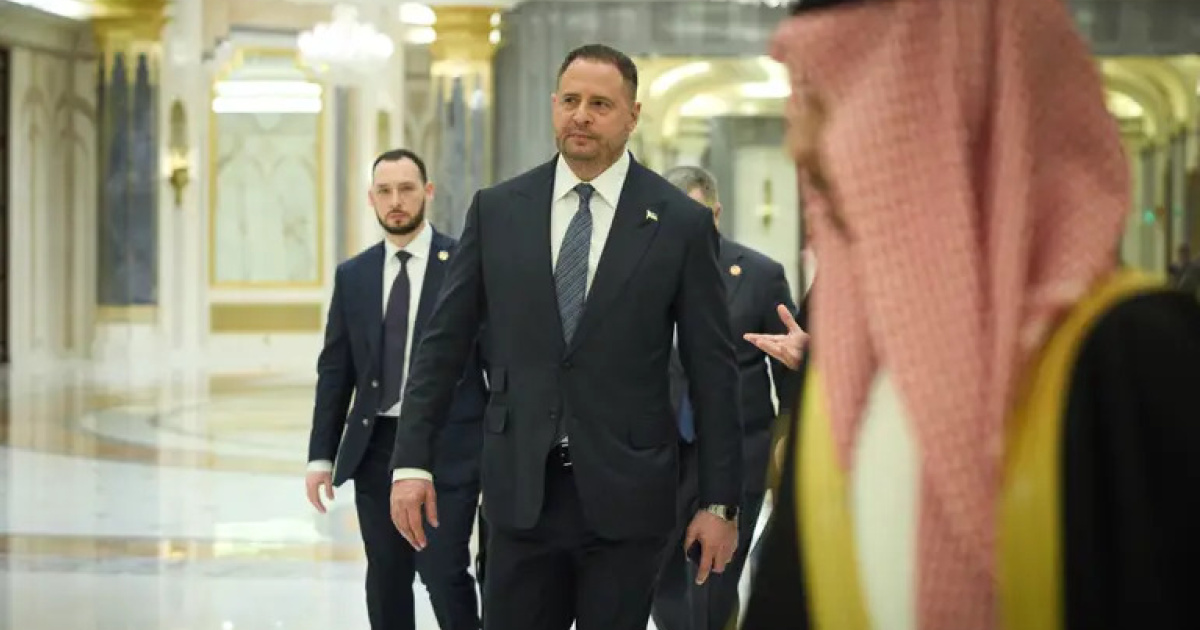Ten years ago, russia began the military annexation of Crimea. In just a few days, the official authorities on the peninsula were overthrown, the Crimean parliament was seized, and an illegal "referendum" on joining russia was announced.
"It all happened very quickly, literally in the blink of an eye. I remember that many didn't like what was happening in Kyiv, but so little time passed from dissatisfaction to a change of power, that there is no doubt about a pre-planned scenario. Emotions were raging all around; we were not given the opportunity to realize the seriousness of the situation and the possible consequences. Boom – and we became part of russia. Some were happy, some packed their things and left, some just froze and waited to see what would happen next", - recalls Volodymyr, a resident of Crimea.
Then came international sanctions, isolation of the peninsula, energy and water blockades, a decrease in tourist flows, blocking of bank cards, shortages, and high prices for many goods. Today, the Crimean peninsula is under regular drone and missile attacks, trenches are dug on many beaches, and local residents try to leave for the mainland of russia or other countries.
"The billboard from 2014 about 'stones from the sky' turned out to be prophetic", - Volodymyr notes.

OstroV remembered how the annexation of the Crimean peninsula began and asked local residents how their lives have changed over these ten years.
How it all began
The annexation of Crimea is considered to have started on February 20, 2014 – precisely the date imprinted on russian medals for the occupation of the peninsula.
However, active events began on February 23 when a massive rally took place on the central square of Sevastopol, expressing distrust in the city administration and "electing" a new "mayor", a russian citizen named Alexey Chaly. It was then that the first open calls for a referendum and secession from Ukraine were voiced from the stage. From that day, checkpoints with "self-defense squads" appeared at the entrance to the city.
"I remember the day when they appointed our 'people's mayor' very well; it didn't surprise anyone. But at that time, there were no clear calls for joining russia. There were some vague discussions about it, but nothing more. Many couldn't believe it. There was a clear conviction that we disagreed with Kyiv's policies and needed more autonomy and freedom. The whole story with russia, as I remember, started from Simferopol and Aksyonov's appeal", - recalls Sevastopol resident Svitlana.
On February 25, in Simferopol, a massive rally gathered in front of the Crimean parliament, demanding Crimea's exit from Ukraine and a "referendum".
The next day, a pro-Ukrainian rally assembled under the Crimean parliament, leading to clashes and dozens of injuries.
During the night on February 27, several unknown and heavily armed individuals stormed the Crimean parliament building. It was later revealed to be the special forces of the Main Intelligence Directorate of the russian federation. On the same day, all Ukrainian flags were removed from flagpoles above government buildings in Simferopol and replaced with russian tricolors. However, this event did not deter the leadership of the Crimean Supreme Council. Under the chairmanship of speaker Konstantinov, an extraordinary session was held, during which the decision was made to hold a "referendum" on questions regarding the enhancement of the Autonomous Republic of Crimea's status and powers. Initially set for May 25, 2014 (the day of the Ukrainian presidential elections), the date was later moved to March 16.
For the corresponding decision, allegedly, 61 deputies of the Supreme Council voted. However, a few days later, journalists discovered that only 40 deputies out of 100 were actually present in the hall.
In addition, the Crimean government was dismissed, and the leader of the "russian Unity" party, Sergey Aksenov, was appointed as the new "head of the Crimean Council of Ministers".
It was he who appealed to russian president vladimir putin, requesting "assistance in ensuring peace and tranquility in the territory of the Autonomous Republic of Crimea". Aksenov also directly subordinated all the power structures of Crimea to himself, including the Ministry of Internal Affairs, the military, the Emergencies Ministry, the fleet, tax, and border services.
"I order all commanders to follow only my orders and directives. Dissenters are requested to leave the service", - stated Aksenov at that time.
Russia quickly responded to this, and the Federation Council authorized the use of russian armed forces on the territory of Ukraine. On that day, some media outlets, wrote for the first time: "War begins in Ukraine," "Russia declares war on Ukraine".
Simultaneously, armed groups without identification marks appeared on the peninsula, capturing state institutions in Crimea, blocking Ukrainian military units, as well as closing roads and establishing checkpoints.
In those few days, the scene became ordinary in Simferopol, with "unknown" individuals in uniforms, armed with rifles and machine guns, freely roaming the streets. At the entrance to Crimea, all vehicles underwent thorough inspections and searches by unidentified armed individuals. People could be denied entry to the peninsula without explaining the reason, especially if their cars had Kyiv or Lviv license plates. Numerous checkpoints were set up on internal roads in Crimea, such as Simferopol-Sevastopol and Yalta-Sevastopol, where vehicles were stopped and searched.
Initially, putin claimed that these were the "local self-defense forces", but later admitted that they were russian military personnel.
"Yes, I don't hide it, of course, it's a fact, we never hid it, our armed forces, let's put it bluntly, blocked the Ukrainian armed forces stationed in Crimea", - said the russian dictator in November 2014.
In addition to military methods, the occupiers launched a propaganda campaign in Crimea, aiming to show that life for Crimeans would be better under russia.
Promises and reality
The propaganda material distributed in Crimea ahead of the "referendum" was simply staggering. Various leaflets, newspapers, and posters were handed out in all major Crimean cities. Agitation work was particularly lively in Sevastopol and Simferopol.
In the Crimean capital, for example, during a 20-minute walk from the bus station to the city center, an OstroV correspondent received 8 leaflets and 2 newspapers urging people to come to the "referendum" on March 16 and vote for Crimea's inclusion in russia.
"Do you want to receive a Russian salary? Then vote for the first option in the referendum", - said a woman who identified herself as a pro-russian activist.
It was challenging to have a reasonable conversation with the woman back in 2014. When asked by an OstroV journalist about the high russian prices for utilities, transportation, and food, which Crimea would also face along with higher salaries, she threatened to call military to explain things.
Ten years after the annexation, OstroV spoke with local residents about the russian salaries that agitators tempted them with in 2014.
"If you work in the military or public sector, have work experience and bonuses, as well as your own housing for which you don't have to pay rent, then, of course, you will be fine. I worked as a restaurant administrator until 2014 and still do nowadays. Whether back then or today, I live from paycheck to paycheck. The numbers have changed, but the quality of life hasn't improved", - Sergiy, a resident of Sevastopol, told OstroV.
He explained that before the annexation of the peninsula, he earned about UAH 5-6 thousand per month, working in one of the city's best restaurants. Out of that, he rented a one bedroom apartment for UAH 2,200, which was about 40% of his salary.
Today, working as an administrator in another restaurant in Sevastopol, Sergey earns RUB 45 thousand (UAH 18,700) and pays RUB 27 thousand (UAH 11,200) for a rented apartment.
"In fact, now I pay more for my housing. Of course, I could rent a room or share the rent, and then I would have more money left, but I value my comfort and am used to living alone. I spend entire days at work or at the gym, so I have neither time, nor energy, nor, as you understand, money for travel and other leisure activities. Until 2014, I did manage to visit Egypt, Kyiv, Dnipro, Kharkiv; now my maximum is occasional trips around the peninsula, and even that only in the summer", - he explained.
According to "official statistics" from Rosstat, in occupied Crimea, the average salary is around RUB 45 thousand (while the average salary in russia is RUB 73,830).
In reality, salaries in major Crimean cities start from RUB 20-25 thousand (for salespeople, couriers, administrators, chefs, waiters). Teachers in schools on a full-time basis receive around RUB 40 thousand and above (depending on additional workload), while doctors earn between RUB 45-60 thousand.
"You can't say that salaries haven't increased in 10 years. Of course, they have. Working as a nurse in a state hospital, my daughter gets paid RUB 37 thousand (UAH 15,300), plus there are bonuses, allowances, and overtime. Under Ukrainian government, you couldn't dream of such a salary. And in Ukraine now, an ordinary nurse can't earn that much. Another point is that prices for everything have significantly increased, and it's almost impossible to live independently on this salary. Transportation, utilities, clothing, and food have all become several times more expensive. Many are being lured to the mainland (to moscow, St. Petersburg, Krasnodar, Rostov), where salaries are already twice as high. Moreover, you can rent an apartment there for less, such a paradox. That's why many have left. Those who have their own housing, families, and those who are used to living by the sea and close to nature stay here", - said Maria K., a resident of Sevastopol.
She was surprised when told that the average salary for a nurse in Kyiv, for example, is UAH 17,500 (according to work.ua).
"Oh, I thought nurses in Ukraine get UAH 5-7 thousand at most, that's strange", - she responded.
Mykhailo, a Crimean realtor working in Yevpatoria, told OstroV that the average salary for his colleagues is RUB 25-35 thousand.
"In reality, we receive about RUB 30 thousand, and this is considered a normal salary, without bonuses. Currently, it's challenging to find people willing to work on a bonus basis because there is not much work. Everyone needs stability. In general, it's a good salary for Yevpatoria, if, of course, you don't rent housing. You can afford going to the cinema, theater, and have a normal diet (without eating out too often). My son graduated from the university in Sevastopol in the economics department, managed to find a job for 25 thousand in a small construction company, and that was tough. Those are the salary realities. My son will work there for a bit, gain experience, and then go to build his life and career in russia because there's nothing to do in Crimea", - he said.
Renting accommodation is a separate problem in Crimea. Even before the annexation of the peninsula, locals were not eager to set reasonable prices for long-term rentals, as they were oriented towards tourists and short-term rentals.
Maria recalls that before 2014, she rented a one-bedroom apartment for UAH 2,500 per month but asked tenants to vacate the property during the summer season for short-term rentals.
"I earned UAH 200-300 per day from tourists back then. Nowadays, I no longer rent the apartment on a daily basis because tourists, if there are any, don't come here. So for the past two years, I've been renting the property long-term to a married couple for RUB 27 thousand (UAH 11,200). Plus, I receive a RUB 13 thousand pension (UAH 5,400). I live on this money, and it's impossible to save; it all goes to food and medicine", - she told OstroV.
Currently, in major cities of Crimea (Sevastopol, Simferopol, Yevpatoria), prices for long-term rental of a one-bedroom apartment start from RUB 25 thousand (approximately UAH 10 thousand).
Even with an average salary of RUB 40 thousand, renting a separate housing is practically impossible, complain local residents.
"On the one hand, we have some of the lowest salaries in russia, on the other hand, local residents are unwilling to lower prices for long-term rentals, waiting for tourists. With the war, prices have dropped a bit, and they are now considering long-term tenants. But with caution and the caveat that eviction is possible in the summer. Right now, we are looking for tenants for an apartment in Yevpatoria with a sea view for RUB 28 thousand. At first, the owners wanted 30-35 thousand, we can't find tenants willing to pay that much. I think we won't find them even for 28 thousand. The real price is 23-24 thousand. But the owners immediately specify: in the summer, if there are tourists, they will evict people. After all, during the season, you can earn 60-70 thousand per month. We explain them that with the war, people tourists are not coming to Crimea, and that they need to agree to a proper long-term contract. But they are afraid they will lose out", - realtor Mykhailo from Yevpatoria told OstroV.
According to him, local residents, accustomed to earning during the season from tourists, are very reluctant to accept the new reality.
The tourist industry, one of the main sectors of the peninsula's economy, has also undergone significant changes. Firstly, the number of arrivals has decreased significantly.
Before the annexation, an average of 6 million tourists visited the peninsula. According to the so-called "head of the Crimean parliament" Vladimir Konstantinov, the tourist flow to Crimea in 2023 amounted to 4-4.5 million people. Even if we believe these "official figures", the tourist flow has dropped by 30% over the past ten years.
Secondly, each year, tourism in Crimea increasingly transforms into a social activity, with public sector employees being sent on vacations with free or specially priced vouchers. According to representatives of the tourism industry, only large sanatoriums and recreation bases benefit from this type of tourism.
"Tourists arrive, settle in a hotel where their accommodation and meals are paid for, they go to the beach and stroll in the park, in other words, they don't contribute to the economy. For Crimea, a tourist is not just someone paying for accommodation; it's visits to restaurants, excursions, water parks, souvenirs purchases, and so on. This is how a significant part of the population in Crimea makes a living. In recent years, this has changed significantly. Therefore, many Crimeans have closed their businesses. Some have simply moved to the mainland, which is not as dependent on one sector", - said one of the local travel agents in a comment to OstroV.
In 2014, occupiers also promised quality and free healthcare and cheap gasoline. However, reality turned out to be different. According to official russian statistics, gasoline prices in Crimea and Sevastopol are among the highest in russia. Moreover, the region regularly experiences fuel shortages.
As for "quality" healthcare, even the occupying authorities acknowledge an unprecedented shortage of medical staff in Crimea. Moreover, many hospital departments are now reprofiled for treating injured military personnel. According to local residents, getting an appointment with a specialized specialist for free is extremely challenging, with waiting times stretching for weeks or even months.
"You can still see a general practitioner for an official sick leave. But when it comes to actual examination and treatment, it's easier to turn to a private clinic or go to the mainland. Last year, I wanted to see a gastroenterologist and have an ultrasound, but they told me to wait for one and a half months to get an appointment with the doctor, and it's still unknown how long for the actual examination. Of course, I didn't wait and had everything done at a private clinic in Simferopol. I paid RUB 4,500 (UAH 1,900) for a consultation and ultrasound. It's expensive, but I needed it urgently. And everyone complains that there are too few personnel, and everyone is leaving. That's the kind of accessible healthcare we have", - said Kateryna, a resident of Simferopol, in an interview with OstroV.
At the same time, according to her, many Crimean residents blame the war for their low salaries, high prices, and lack of prospects—not the russian authorities, as propaganda claims that the war was "started by Ukraine and NATO".
By Andriy Andrieyev, OstroV




